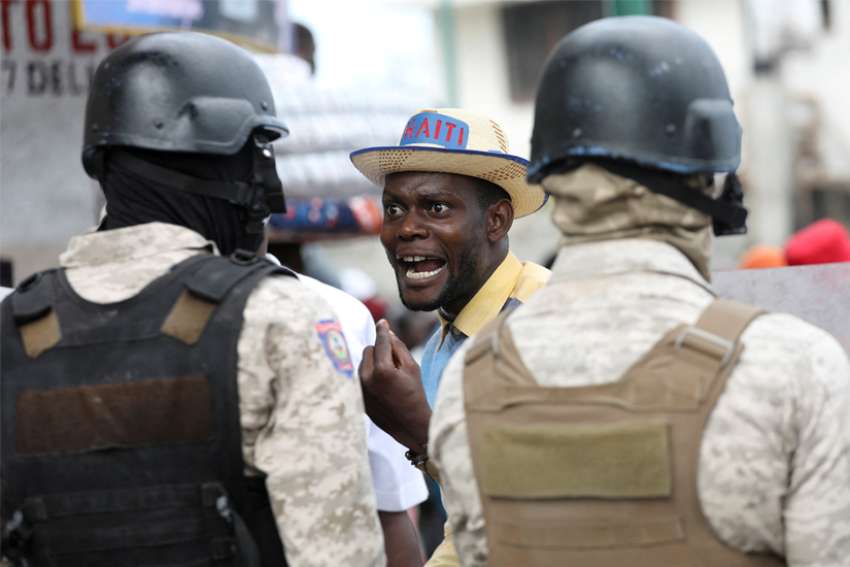The Jesuits are cautioning that not just any combination of foreign troops, police and international organizations should be invited into the gaping chasm left by a dysfunctional government in Port au Prince.
“While we recognize that the involvement of the international community is essential, Haitians must be willing to engage wholeheartedly in a genuine national initiative, assume their own share of responsibility and affirm their civic commitment,” Haitian Jesuit Superior Fr. Jean Dennis Saint-Felix wrote in a statement released to The Catholic Register. The Haitian Jesuits are part of the Canadian province of the global Jesuit order.
In the first six months of this year the United Nations human rights office in Haiti documented 934 killings, 684 injuries and 680 kidnappings across the capital of Port au Prince. As gangs take over the roads and poor neighbourhoods that connect the capital city with the rest of the country it has become impossible to know how many are being killed across the country. According to the UN office, 234 more were killed just in the Port au Prince neighbourhood of Cite Soleil over five days between July 8 and 12.
On July 27, the Catholic cathedral in Port-au-Prince was set on fire during a turf war between two gangs; firefighters were able to extinguish the fire before it did major damage.
A coalition of 20 religious orders called on the international community “to respond swiftly and effectively to the atrocities occurring in Haiti.” But the Jesuits declined the invitation to join with the other orders and warn that a badly planned, temporary intervention could simply further degrade the ability of Haitians to govern themselves and build a common future.
The Justice Coalition of Religious described a unanimous UN Security Council vote on July 16 to extend the mandate of a small UN political mission in the country as “nowhere near what Haiti needs from the UN to enhance the protection of lives and human rights of Haitians.” It also called a vote to ban small weapon sales to Haiti “insufficient.”
But more action from the UN won’t fundamentally change Haiti, the Jesuits warn.
“The actual historical circumstances surrounding the birth of the nation and the negative experience of Haitians with the international community, especially the United Nations, leave us perplexed and wary,” Saint-Felix wrote.
Saint-Felix does not deny something must be done quickly, or that the Haitian government is incapable of controlling the gang violence. He alleges that many of the gangs are connected to and directed by politicians in Port au Prince.
There are at least 165,000 Haitian immigrants living in Canada. Haiti is Canada’s largest aid recipient in the Americas, with an annual development assistance budget of some $98 million. For over 20 years, Canada has supported UN peace missions in Haiti trying to stabilize and reconstruct the francophone Caribbean nation. Canada chairs the United Nations Economic and Social Council’s ad hoc advisory group on Haiti and is a member of the Core Group in Port-au-Prince, which has a mandate to serve as the voice of the international community but is often accused of controlling the Haitian government.
(With files from CNS)


